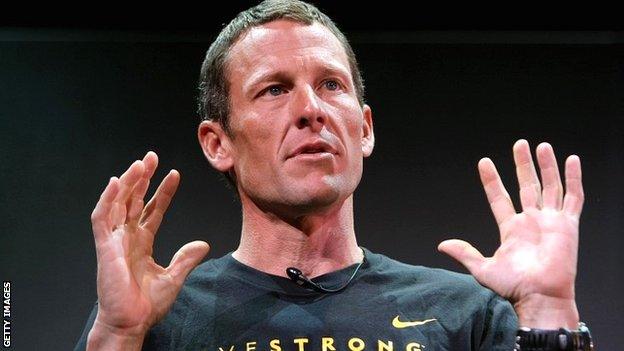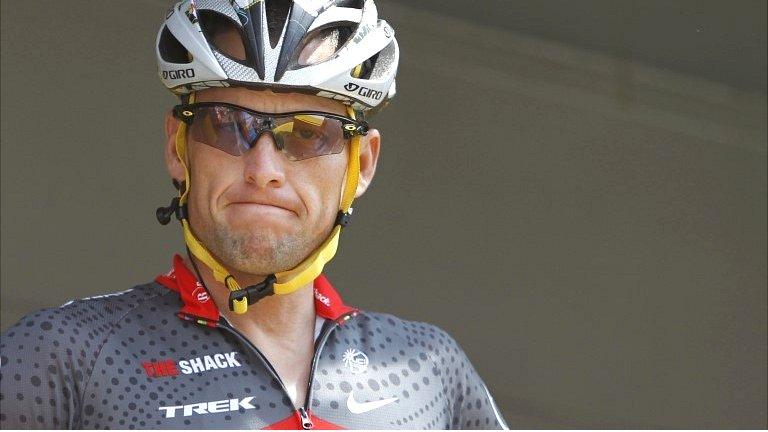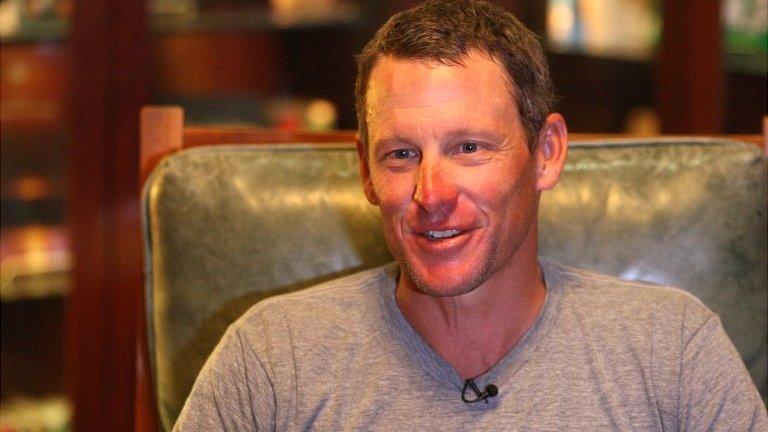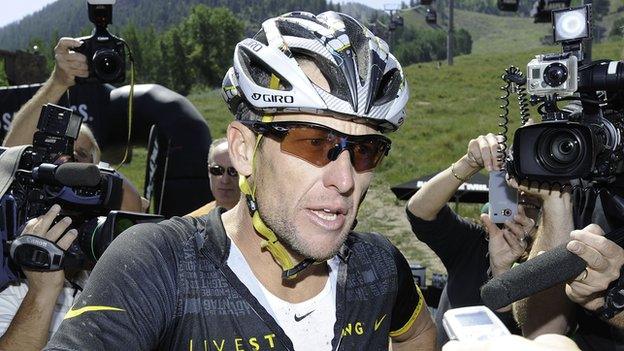Lance Armstrong holds lengthy talks with doping investigators
- Published

Disgraced former cyclist Lance Armstrong has talked with investigators about doping in the sport's past, said his lawyer Elliot Peters.
The American, 42, met the Cycling Independent Reform Commission for seven hours in Washington DC in May.
"It was a very good meeting," claimed Peters.
Armstrong was stripped of his seven Tour de France titles from 1999 to 2005 and handed a lifetime ban over his use of performance-enhancing drugs in 2012.
Peters added: "If you made a list of all the questions people would want to ask about Lance and his activities in cycling and everything else, those were the questions that were asked and answered."
The Commission's investigation has been expected to centre on the International Cycling Union's handling of doping in the late 1990s and early 2000s, especially its links with Armstrong.
Lance Armstrong - cycling career | |
|---|---|
Born: Plano, Texas, USA on 18 September 1971 | Battle with cancer: Diagnosed with testicular cancer in 1996. The disease spreads through his body. Launches Lance Armstrong Foundation for Cancer. Declared cancer-free in 1997 after brain surgery and chemotherapy. |
Tour de France victories (later stripped off him): 1999, 2000, 2001, 2002, 2003, 2004, 2005 (22 individual stage wins) | First retirement: Announces he will retire after the 2005 Tour de France, which he wins. |
World Championships road race victory: 1993 | Comeback: Angered by drug allegations against him, Armstrong announces in September 2008 he will return to professional cycling. After revealing the 2010 Tour de France would be his last, he retires in February 2011. |
Armstrong's willingness to meet with investigators has been seen as crucial to their efforts to determine whether former officials with the sport's governing body aided his doping as the Texan became cycling's biggest star.
Travis Tygart, head of the United States Anti-Doping Agency (Usada) has said that Armstrong's lifetime ban for doping could be reduced if he provides information which assists other doping investigations.
The Commission has the authority to cut deals with cheaters who provide valuable information. However, Peters said Armstrong did not ask for, and was not offered, such a deal in exchange for meeting with the group.
"There is no agreement and that was never discussed. We never asked for one," Peters said. "We do think the ban was unfairly harsh and should be reduced.
"He's [Armstrong] talking in the spirit of not trying to benefit by getting somebody else in trouble, but in the spirit of 'let's tell the truth'."
Armstrong, who overcame cancer before the first of his seven successive Tour "wins" in 1999, also handed back the bronze medal he won in the road time trial at the 2000 Olympics in Sydney.
He finally retired from cycling in 2011, external after initially quitting in 2005.
In 2012, he had his titles taken off him and last year admitted to cheating.
Last month, Armstrong was questioned in a private arbitration dispute with a Dallas company seeking repayment of £7m in bonuses it paid him during his career.
A survey published by Dutch newspaper De Telegraaf this week claims that 12 of the 25 surviving winners of cycling's biggest race believe that Armstrong should be handed back his seven Tour de France titles., external
- Published20 June 2014

- Published11 November 2013

- Published6 November 2013
